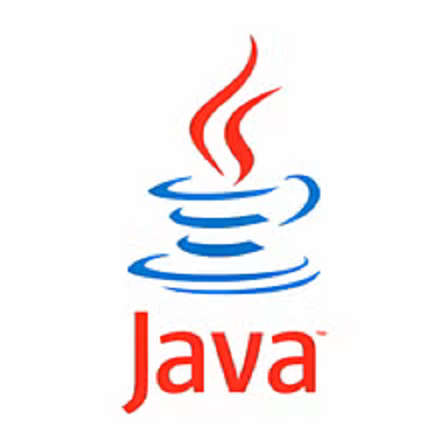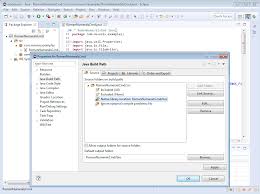Exploring the Significance of Java Runtime Environment (JRE)
The Importance of Java Runtime Environment (JRE)
Java Runtime Environment (JRE) is a crucial component for running Java applications on your computer. It provides the necessary environment for Java programs to execute smoothly without the need for recompilation.
What is Java Runtime Environment?
JRE consists of the Java Virtual Machine (JVM), class libraries, and other supporting files required to run Java applications. When you install JRE on your system, it enables you to execute Java programs by interpreting the bytecode generated by the Java compiler.
Key Features of JRE:
- Java Virtual Machine (JVM): The JVM is responsible for executing Java bytecode and translating it into machine code that can be understood by the underlying operating system.
- Class Libraries: JRE includes a set of prewritten classes and methods that provide essential functionality to Java applications, such as input/output operations, networking, and data structures.
- Security Features: JRE incorporates security measures to protect your system from malicious code and ensure safe execution of Java programs.
- Automatic Garbage Collection: JRE manages memory allocation and deallocation through automatic garbage collection, which helps in optimizing memory usage and improving performance.
- Cross-Platform Compatibility: One of the key advantages of JRE is its ability to run on multiple platforms without requiring platform-specific modifications to the code.
How to Install JRE?
You can download and install the latest version of JRE from the official Oracle website or through package managers depending on your operating system. Once installed, your system will be equipped to run a wide range of Java applications seamlessly.
In Conclusion
JRE plays a vital role in enabling the execution of Java programs across different platforms. By providing a consistent runtime environment, it ensures that developers can create robust and portable applications that are accessible to users worldwide.
Essential Tips for Managing and Optimizing Your Java Runtime Environment
- Make sure you have the latest version of Java Runtime Environment (JRE) installed.
- Regularly check for updates to ensure your JRE is secure and up-to-date.
- Understand the difference between JRE and JDK (Java Development Kit).
- Set appropriate environment variables like JAVA_HOME to point to your JRE installation directory.
- Be cautious when modifying JRE settings as it can impact the behavior of Java applications.
- Learn how to troubleshoot common JRE issues such as runtime errors or class not found exceptions.
- Consider using tools like jps (Java Virtual Machine Process Status Tool) to monitor running Java processes.
- Optimize your Java applications for better performance by tuning the JRE parameters like memory allocation.
- Keep an eye on Java garbage collection patterns to identify and resolve memory leaks in your applications.
Make sure you have the latest version of Java Runtime Environment (JRE) installed.
To ensure optimal performance and security when running Java applications, it is essential to have the latest version of Java Runtime Environment (JRE) installed on your system. By keeping JRE up to date, you can benefit from the latest features, improvements, and security patches provided by Oracle. This helps in enhancing the stability of Java programs and mitigating potential vulnerabilities that could compromise your system. Therefore, regularly checking for updates and maintaining the newest version of JRE is recommended to enjoy a seamless Java runtime experience.
Regularly check for updates to ensure your JRE is secure and up-to-date.
It is essential to regularly check for updates to ensure that your Java Runtime Environment (JRE) is secure and up-to-date. Updating your JRE not only helps in fixing any existing vulnerabilities but also ensures that you have access to the latest features and improvements. By staying current with updates, you can enhance the performance and security of your Java applications, providing a more stable and reliable environment for running your programs.
Understand the difference between JRE and JDK (Java Development Kit).
Understanding the difference between JRE (Java Runtime Environment) and JDK (Java Development Kit) is essential for Java developers. While JRE is necessary for running Java applications, JDK includes additional tools like compilers and debuggers that are vital for developing Java programs. Essentially, JRE enables the execution of Java code, whereas JDK provides a comprehensive set of tools for both development and runtime environments. Developers need to have a clear grasp of these distinctions to effectively create and deploy Java applications.
Set appropriate environment variables like JAVA_HOME to point to your JRE installation directory.
Setting appropriate environment variables like JAVA_HOME to point to your Java Runtime Environment (JRE) installation directory is a crucial tip for ensuring smooth operation of Java applications on your system. By defining JAVA_HOME, you provide a clear reference for the system to locate the necessary JRE files when executing Java programs. This not only simplifies the process of running Java applications but also helps avoid potential errors related to missing or conflicting JRE installations. Taking this simple step can greatly enhance the efficiency and reliability of your Java development environment.
Be cautious when modifying JRE settings as it can impact the behavior of Java applications.
It is important to exercise caution when making modifications to Java Runtime Environment (JRE) settings, as these changes can significantly affect the behavior and performance of Java applications. Altering JRE settings without proper understanding or guidance may lead to compatibility issues, runtime errors, or security vulnerabilities. It is recommended to thoroughly research the implications of any adjustments to JRE configurations and consult with experienced professionals if necessary to ensure the stability and reliability of Java applications running on your system.
Learn how to troubleshoot common JRE issues such as runtime errors or class not found exceptions.
To enhance your proficiency with Java Runtime Environment (JRE), it is essential to acquire troubleshooting skills for addressing prevalent issues like runtime errors and class not found exceptions. By familiarizing yourself with effective troubleshooting techniques, you can efficiently diagnose and resolve these common JRE-related challenges, ensuring smoother execution of Java applications and enhancing your overall development experience.
Consider using tools like jps (Java Virtual Machine Process Status Tool) to monitor running Java processes.
When working with Java applications, it is beneficial to utilize tools like jps (Java Virtual Machine Process Status Tool) to monitor running Java processes. By leveraging jps, developers can gain insights into the status and performance of Java applications running on the system. This tool provides valuable information about the Java processes, such as their process IDs, main class names, and other relevant details, allowing for effective monitoring and troubleshooting of Java applications in real-time.
Optimize your Java applications for better performance by tuning the JRE parameters like memory allocation.
To enhance the performance of your Java applications, it is essential to optimize the Java Runtime Environment (JRE) parameters, such as memory allocation. By tuning these parameters effectively, you can allocate the right amount of memory to your application, preventing issues like memory leaks or excessive resource consumption. Adjusting JRE settings according to your application’s requirements can significantly improve its efficiency and responsiveness, ultimately leading to a better user experience and smoother operation.
Keep an eye on Java garbage collection patterns to identify and resolve memory leaks in your applications.
Monitoring Java garbage collection patterns is a valuable practice for detecting and addressing memory leaks in your applications. By observing how the JVM manages memory allocation and deallocation through garbage collection, developers can pinpoint areas of inefficient memory usage and potential leaks. Analyzing these patterns allows for proactive identification of memory-related issues, leading to optimized performance and stability of Java applications.







